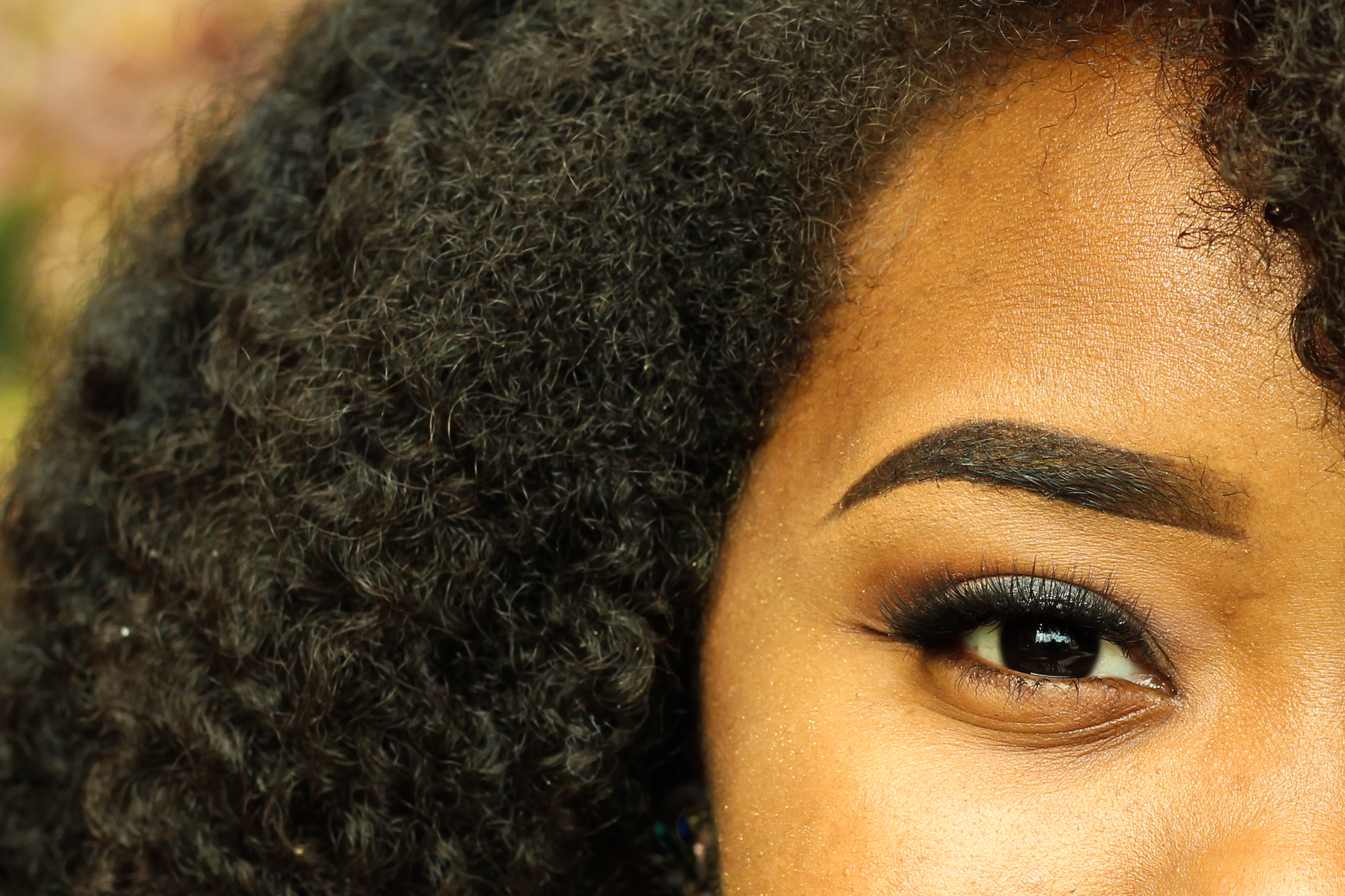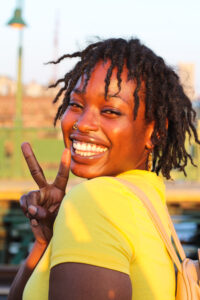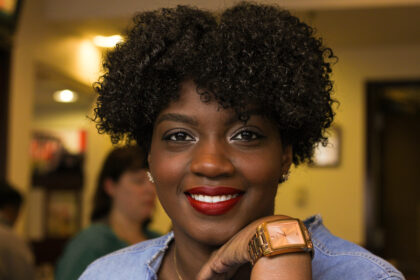‘Your Afro bounces, dances, and sings’

Golden hues radiate from her brown face, framed by dark wavy coils. She beams, brimming with joy. This is the cover image of the book “My Beautiful Black Hair: 101 Natural Hair Stories from the Sisterhood” (2021) by St. Clair Detrick-Jules.
For the D.C filmmaker and photographer, Black hair, the Afro, “becomes alive. It bounces, dances, and sings, and reaches for the sun.”
Detrick-Jules recently discussed with the Clark community how Black natural hair is a form of community, empowerment, and joy. Her Feb. 8 presentation, “Black Hair + Storytelling as a Form of Social Activism,” was a part of the University’s Black History Month celebration, which featured a slate of events organized by the Office of Diversity and Inclusion and the Office of Identity, Student Engagement, and Access (ISEA).

Through interviews and dynamic photography, “My Beautiful Black Hair” chronicles the hair journeys of 101 Black women. With candor and courage, they share painful, yet empowering stories about finding self-love in their curls. The idea for the book was born after Detrick-Jules learned that her younger sister, Khloe, was bullied for her tight curls.
“They told her that her Afro was ugly, that her curls looked like little pieces of shrimp,” Detrick-Jules said.
The comments lodged at Khloe were reminiscent of Detrick-Jules’ own experience of being ashamed of her natural curls. She recalled attending a predominately white school and going home to stare in the mirror, wishing her reflection didn’t look the way it did.
Inspired to bring joy into the rhetoric about Black hair, and feeling compelled to empower her sister, Detrick-Jules decided to create a book celebrating Black women’s coils and curls.
“You are so full of life. So, it seems only fitting that your hair is equally alive,” Detrick-Jules writes in a letter to Khloe in the book. “I want to teach you how to love yourself by loving myself … As Black women, we have to start loving ourselves unconditionally.”
After conducting more than 100 interviews and photographing each woman, Detrick-Jules realized that shame around Black hair was a common experience.

“The disempowerment of the Black body and little Black girl bodies starts from a young age,” Detrick-Jules told the Clark audience. As young Black girls grow into young Black women, they may continue to be bullied for their natural hair, especially in professional spaces, where personal grooming choices are often policed, she said.
“However Black women choose to wear their natural hair, there will always be judgment,” said Detrick-Jules.
A study by the CROWN (Creating a Respectful and Open World for Natural hair) Coalition, co-founded by Dove and social change organizations, indicates that Black women report being 30% more likely to receive a formal grooming policy in the workplace during both the application and orientation phase. The study, which surveyed 2,000 women ages 25 to 64, also showed that Black women reported they are 80% more likely to change their natural hair to meet social norms or expectations at work.
Those surveyed also reported that hairstyles in the workplace affect the perception of “job readiness.”
These responses in the workplace often force Black women to carefully consider how they style their hair, according to the CROWN study and Detrick-Jules. For example, one woman Detrick-Jules interviewed for the book project did not want to be photographed “going natural” because she had a government job. The term “going natural” refers to the process of getting rid of chemically processed straight hair.
“Going natural takes courage. It is a lot to ask of yourself,” Detrick-Jules said, because there is a chance of serious professional consequences.
Detrick-Jules relayed that the woman on the book’s cover, Francesca, straightened her hair at a young age to fit in at school.
“Being Dominican and African American, straight hair made her lean into her Latin identity, losing her Blackness. However, the day Francesca stopped straightening her hair and saw her natural hair, she realized she could no longer push away her Black identity,” Detrick-Jules said.

Hair is a way Black women reconnect with their past, she noted.
“Our ancestors were able to pass down the gift of texture, and that is something white supremacy can never take away from us,” said Kendra Woolridge, one of Detrick-Jules’s interviewees.
During a discussion session with Detrick-Jules, Clark’s Chief Officer of Diversity, Equity, and Inclusion Margo Foreman said hair is a central part of the Black story.
“Celebration of Black history and Blackness is not only the understanding of the scars and pain that make us strong and resilient, but it also a touchstone to what makes us joyful and unique,” Foreman said. “It is born out of our need to self-motivate and the joy that we have being connected to our ancestors.”


